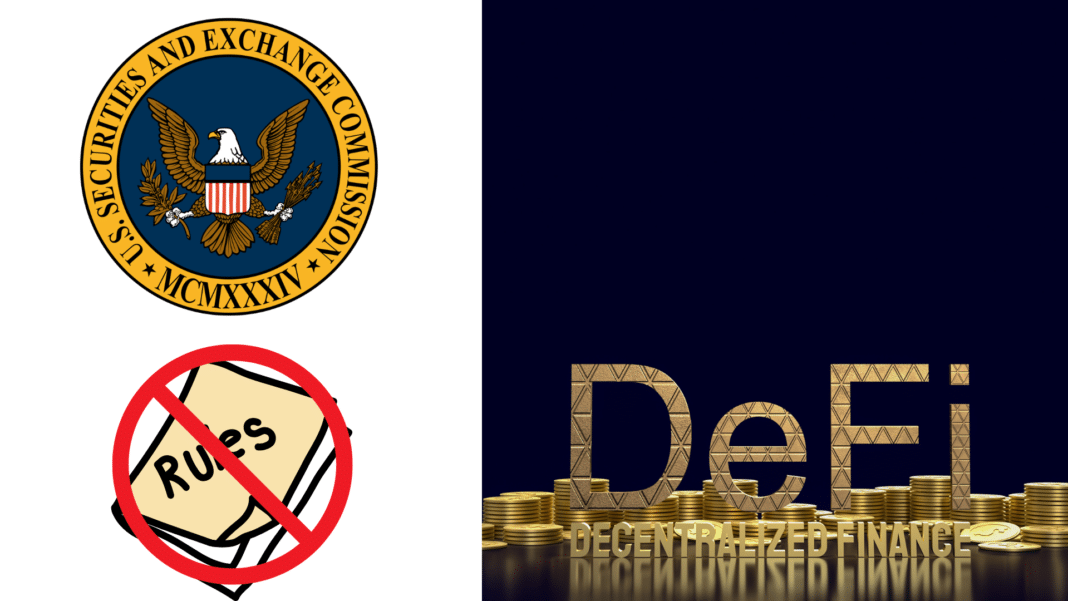In a surprising turn of events, the US SEC has dismissed its appeal to regulate the DeFi market. According to reports, in response to a decision that barred the SEC from extending the scope of current securities rules to cover decentralized finance (DeFi) users and projects, the SEC has voluntarily dropped its appeal.
There was no resistance to the SEC’s four-page motion to withdraw the appeal, which it filed with the U.S. Fifth Circuit Court of Appeals.
SEC’s Last Appeal Held Null and Void
Last November, a federal judge in Texas decided that the SEC had overreached itself in trying to expand the legal definition of “dealers.” The judge determined that the SEC’s dealer regulation amendments were illegal because they confused financial brokers with DeFi traders.
As the popularity of decentralized finance (DeFi) platforms continues to rise, the U.S. Securities and Exchange Commission (SEC) had lately changed its approach to regulation, shifting toward increased control.
The SEC first adopted a laissez-faire stance, permitting decentralized platforms to function with no oversight. But as worries about market manipulation, investor protection, and adherence to securities laws have grown, the SEC has started to step up its enforcement of rules.
Examining DeFi projects that issue tokens or provide financial services that might be governed by securities regulations is part of this.
By ensuring that DeFi platforms comply with legal frameworks and promote robust sector growth, the SEC’s change reflects a more proactive approach to striking a balance between innovation and the need for regulation.
DeFi Poised For Future Growth in The US
Due to the growing need for financial services outside of traditional banks and the expanding use of blockchain technology, the DeFi (Decentralized Finance) industry has experienced enormous growth in the United States.
Without the need for middlemen, DeFi systems enable users to lend, borrow, trade, and earn interest on digital assets. With additional projects being created and included into the larger financial ecosystem, the total value locked (TVL) in DeFi has increased as the industry continues to mature.
The U.S. DeFi industry is expected to increase in the future thanks to institutional acceptance, ongoing innovation, and clear regulations.
DeFi’s attractiveness will be further enhanced by further cooperation with traditional banking and the incorporation of cutting-edge blockchain technology, positioning it as a major participant in the future of global finance. But there are still regulatory obstacles to overcome.
Also Read: Chainlink Introduces DeFi Yield Index To Enhance Market Transparency And Capital Efficiency


